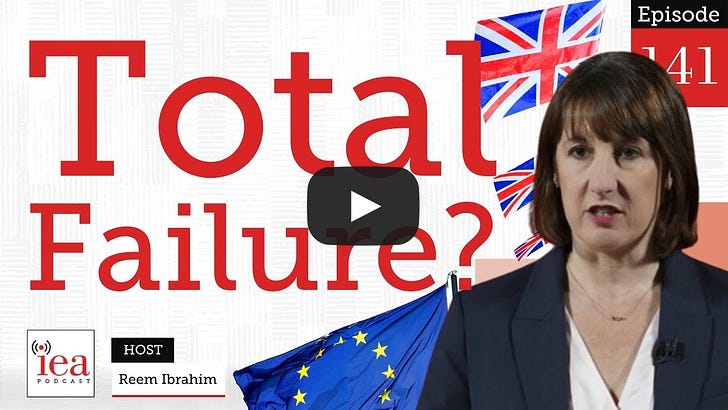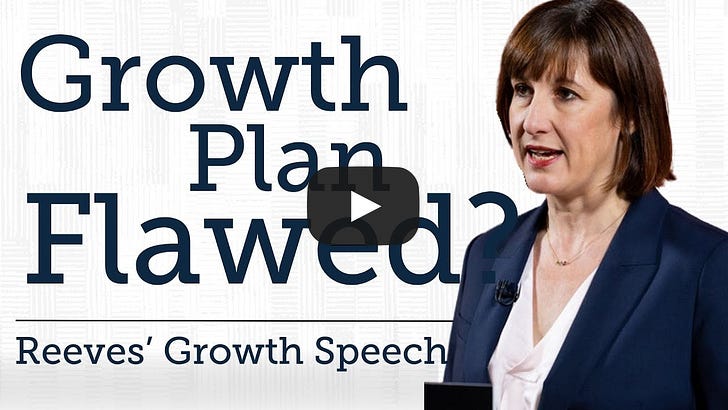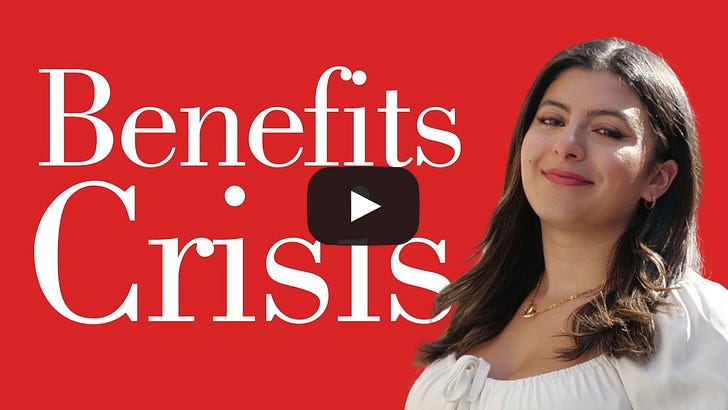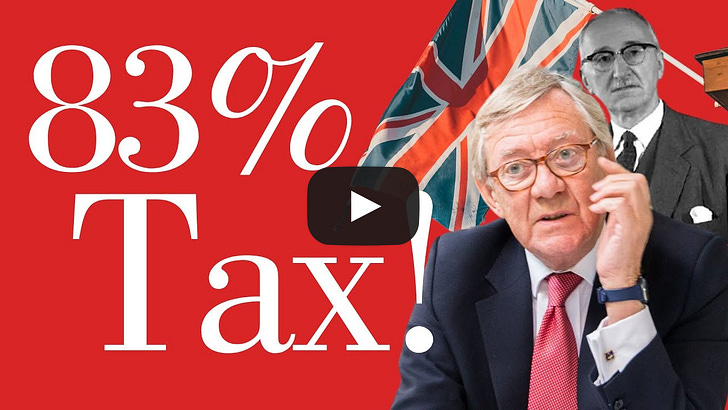|
 |
In today’s newsletter:
How we can make the most of Brexit
Tom Clougherty’s verdict on the Chancellor’s growth speech
Our opponents today compared with the 1970s
Who will be Britain's Reagan
On the podcast: has Labour actually become pro-growth?
and more….
This week marked five years since Britain left the European Union. Debates about the economic impact of Brexit have been underway for some time, with a lot of analysis thwarted by the political divisions the 2016 EU referendum sparked.
It is true that ‘project fear’ warnings of economic annihilation were largely false. ONS data indicates that trade flows across industry sectors to both EU and non-EU countries followed a similar pattern. Between 2019 and 2022, UK goods exports to EU countries increased by 13.5 per cent and to non-EU countries by 14.3 per cent.
That being said, Britain isn’t exactly thriving. You cannot point to a heavily taxed, over-regulated Britain and say “well, this is why we left the EU”. But Britain is struggling because of poor decisions made by our own policymakers – not because of Brexit itself. Our exiting the EU simply means we have only ourselves to blame.
The jury is still out on the the Government’s appetite to take full advantage of the opportunities that Brexit has created. Below, I have made a few suggestions.
There are countless regulatory burdens that continue to hold Britain back, many of which are a legacy of our EU membership. Here are five retained EU laws we should repeal:
Working Time Directive
This bans working more than 48 hours a week. Some estimates suggest this regulation costs the British economy over £5 billion a year.
European Food Information to Consumers Regulation
This, amongst other things, requires shops to attach warnings on their fish products. The label must say that the product may contain fish.
Weights and Measures Directive
This requires us to use metric units in most cases.
Chemicals Directive
The Registration, Evaluation, Authorisation and Restriction of Chemicals (REACH) requires a huge amount of animal testing. This unnecessarily costs the chemicals industry billions.
Health and Safety at Work Framework Directive
This requires businesses to keep a written record of risk assessments carried out in workplaces. Larger firms can absorb the costs; smaller businesses suffer. Yet the practical benefit is insignificant.
The UK could and should pursue freer trade, which improves the well-being of all parties by enabling greater specialisation, and allowing consumers to access cheaper products and services.
Our accession to the Comprehensive and Progressive Agreement for Trans-Pacific Partnership was a welcome success. The CPTPP has opened up new opportunities, especially in the technology and manufacturing sectors. A free trade agreement with the United States, our largest trading partner for services, would be a real prize.
We should also unilaterally eliminate tariffs for intermediate goods. This would increase the competitiveness of our domestic manufacturing industry, and reduce the cost of imports.
On agriculture, we should lower tariffs to zero, especially for goods we do not produce ourselves or which are not in direct competition with domestic production.
One example is Moroccan tomatoes. In early 2023, Western Europe suffered a tomato shortage. Nevertheless, we continued to apply quotas and tariffs to tomatoes from our primary supplier, Morocco. This was a legacy of EU membership, imposed to protect Spanish growers. Tomatoes may not be the most significant Brexit freedom we could take advantage of, but it is certainly a low-hanging-fruit!
In my view, independence itself is invaluable. We have given ourselves so many new levers –it is time someone went ahead and pulled them.
Reem Ibrahim
Communications Manager & Linda Whetstone Scholar
P.S. The best way to never miss out on IEA work, get access to exclusive content, and support our research and educational programmes is to become a paid IEA Insider.
IEA Podcast: Executive Director Tom Clougherty, Editorial Director Kristian Niemietz, and Communications Manager Reem Ibrahim discuss the legacy of Brexit, the Government’s approach to growth, and the early days of the IEA.

Chancellor's rhetoric on growth must become reality
IEA Executive Director Tom Clougherty:
The Chancellor is saying all the right things on growth and should be applauded for many of the decisions she has taken today. Restoring Britain's economic dynamism simply has to be the Government's overriding objective – without that, no other meaningful agenda is possible.
The challenge now is to make sure that rhetoric becomes reality. Can the government face down opposition to the developments that it now wants to proceed? Heathrow's third runway will be the acid test of how heartfelt the government's growth commitment is. After all, we have been here – and been disappointed – before.
The Government also needs to ensure that pro-growth action on specific projects is following by fundamental, systemic reforms – which mean that in future, market-led development does not depend on intervention from Downing Street for its viability. We need genuine regulatory liberalisation if this pro-growth pivot is going to be sustainable.
Crucially, how will prioritising growth sit alongside the Government's plans on employment law and Net Zero? As things stand, policy commitments in those areas clearly militate against stronger economic growth. If the Government is willing to rethink its approach there, we will know that they are serious about putting growth first.
Tom’s comment was referenced in the i, the Daily Mail, the Morning Star, and ConservativeHome,
IEA Executive Director Tom Clougherty, IEA YouTube

News, Views & Upcoming Events
Starmer talks up growth, but his actions tell a different story, Director of Communications Callum Price, CapX
Andy Mayer, COO & Energy Analyst, warns of the risks the UK faces if it doesn’t change course on energy policy, The Telegraph
Reem Ibrahim speaks about the benefits crisis in the UK on Talk TV, IEA YouTube

Callum Price: In light of the so-called ‘Carter Rule’, who will be Britain’s Reagan?, Director of Communications Callum Price, ConservativeHome
“We could be freer”, Communications Manager Reem Ibrahim discusses the legacy of Brexit, Channel 5
Boomers, it’s time to hand over your dosh – and kill millennial socialism, The Telegraph
Brian Kingham introduces the Ralph Harris Centenary Lecture and shares his personal experiences with Ralph Harris and the Institute of Economic Affairs during Britain's turbulent 1970s, IEA YouTube

You’re currently a free subscriber to Insider. For the full experience, upgrade your subscription.
Paid subscribers support the IEA's charitable mission and receive special invites to exclusive events, including the thought-provoking IEA Book Club.
We are offering all new subscribers a special offer. For a limited time only, you will receive 15% off and a complimentary copy of Dr Stephen Davies’ latest book, Apocalypse Next: The Economics of Global Catastrophic Risks.






![[INVITATION] IEA Book Club with Sam Freedman](https://substackcdn.com/image/fetch/w_1300,h_650,c_fill,f_auto,q_auto:good,fl_progressive:steep,g_auto/https%3A%2F%2Fsubstack-post-media.s3.amazonaws.com%2Fpublic%2Fimages%2F36f6a2e1-4c30-49b6-a6e8-a142490394cf_2160x1080.png)